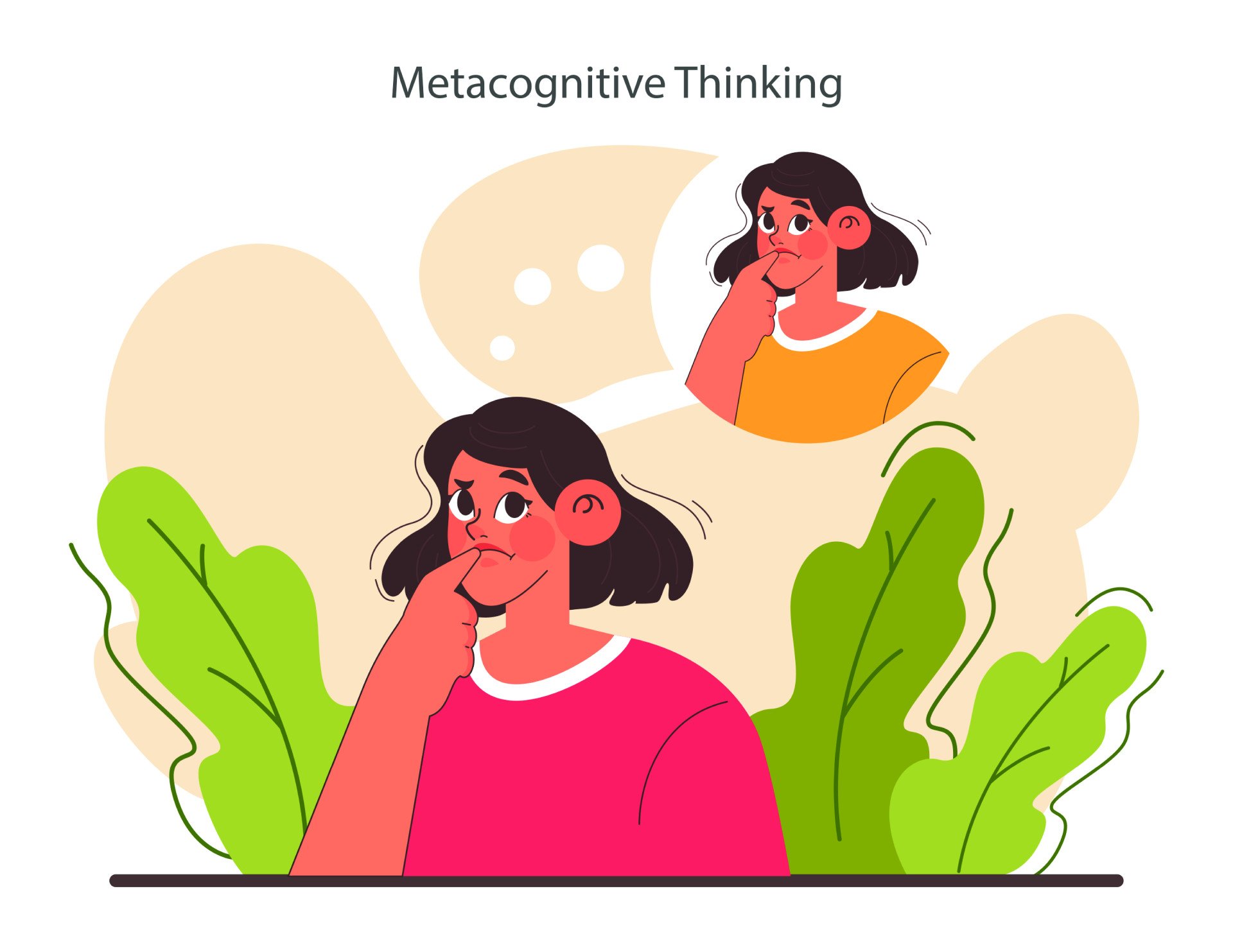Imagine standing at a crossroads: one road leads to a steady job close to family, the other to a risky opportunity abroad.
There’s no clear “right” answer – only trade-offs, uncertainty, and the gnawing awareness that whatever you choose will reshape your life.
Traditional advice – like emulating successful people or following simple rules—often feels flimsy in moments like this.
What worked for someone else may not fit your unique circumstances. And rules of thumb, while efficient, can clash (“act fast” vs. “sleep on it”) and leave you paralyzed.
A new line of research suggests the missing piece may not be better rules but better self-reflection.
The secret?
Metacognition: the ability to notice, question, and guide your own thoughts and emotions.

Key Points
- Everyday shortcuts and role models often fail when life’s problems are messy, unpredictable, or deeply personal.
- Metacognition—reflecting on and regulating your own thoughts and feelings – helps people adapt wisely to uncertainty.
- Skills like intellectual humility, perspective-taking, and self-distancing can be practiced and strengthened over time.
- Training metacognition shows promise for mental health, relationships, and decision-making in high-stakes situations.
Why Old Decision Models Break Down
For decades, psychology and economics tried to model decision-making with neat equations: weigh the pros and cons, calculate probabilities, and pick the option with the best payoff.
But real life rarely offers tidy math.
You can’t assign a percentage to “future happiness” or compare the value of love versus security.
Many choices – marriage, migration, medical treatments – carry unknowable outcomes and permanently alter who we become.
In these moments of radical uncertainty, the old models collapse. Wisdom, not calculation, becomes our best compass.
Wisdom Isn’t Just Copying or Shortcutting
Philosophy has long seen wisdom as the art of balancing conflicting values and adapting to change. Psychologists now test how this might work in practice.
Two popular approaches have emerged:
- Learning from exemplars. We look to admired figures – Gandhi, Martin Luther King Jr., or even modern entrepreneurs – for inspiration. But prestige bias can mislead; their strategies may not work in our context.
- Relying on heuristics. Mental shortcuts, like the 80/20 rule, save effort and often succeed. Yet when multiple rules clash or miss the nuance of a situation, wisdom demands more than “rules of thumb.”
Both methods have value.
But researchers argue they miss the crucial ingredient: the ability to step back and decide which strategy fits here and now.
Metacognition: Thinking About Thinking
Metacognition is like holding up a mirror to your mind.
It lets you notice when you’re overconfident, ask whether your emotions are steering you wisely, and adjust course.
Key skills include:
- Intellectual humility: recognizing the limits of your knowledge.
- Perspective-taking: seeing the problem from multiple viewpoints.
- Balancing interests: weighing competing values instead of ignoring them.
Together, these processes allow people to navigate uncertainty with more flexibility.
Instead of blindly copying or rigidly following rules, metacognition equips you to tailor your decision-making.
How to Train a Wiser Mind
The good news: metacognitive skills aren’t fixed traits. Studies show they can be nurtured through deliberate, regular practice.
Metacognition Skills
- Pause and reflect: Ask yourself: What assumptions am I making? What might I be missing?
- Consider the opposite: Generating counterarguments to your own view reduces confirmation bias and increases open-mindedness.
- Reflective journaling and mindfulness: These practices strengthen awareness of thought patterns and encourage curiosity rather than rigid certainty.
- Advising a friend: Imagine how you’d guide someone else in your situation. Researchers call this Solomon’s paradox: we reason more wisely for others than ourselves.
- Self-distancing: Writing or talking about your problems in the second (you) or third person (“Why is Sarah feeling stuck?”) helps people reflect with more balance and less defensiveness.
1. Second-person self-talk (“you” statements)
- Research shows that using second-person pronouns (“you should stay calm,” “you’ve got this”) can boost self-control and motivation.
- It creates a sense of coaching yourself from the outside, similar to how you’d encourage a friend.
- For example: “You’re feeling anxious about this meeting. You should slow your breathing.”
- This works because it provides a little psychological distance while still keeping things relatable.
2. Third-person self-talk (illeism: “James feels…”)
- Referring to yourself by name or in the third person (“James feels nervous… James should consider the alternatives”) creates even more distance.
- Studies by Igor Grossmann and Ethan Kross found that this method encourages wiser reasoning, because it feels less like “me in the moment” and more like “an observer weighing options.”
- This reduces emotional bias and increases perspective-taking, especially for heated or personal dilemmas.
Why It Matters for Mental Health
Metacognition doesn’t just sharpen decision-making – it supports wellbeing.
People trained in self-distancing report less rumination, reduced negative emotion, and greater resilience under stress.
Clinicians already harness these tools in therapy, teaching clients to recognize and adjust unhelpful thinking patterns.
Meanwhile, workplaces experiment with mindfulness and group reflection to improve team problem-solving.
At its core, metacognition blends cognition with emotion, logic with empathy. It’s not about eliminating uncertainty but learning to live with it more wisely.
Reference
Grossmann, I., & Johnson, S. G. B. (2025). Cultivating wisdom through metacognition: A new frontier in decision-making under radical uncertainty.Journal of Applied Research in Memory and Cognition, 14(3), 301–318. https://doi.org/10.1037/mac0000235

